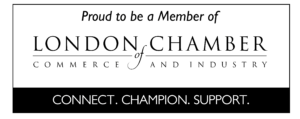To Niche or Not to Niche?
Business people seem to be always talking about niching. It seems almost universally accepted, and regurgitated, that every business needs to find its niche.
How often are you asked what your niche is? What sector do you specialise in? What vertical do you operate in?
And many business people seem genuinely shocked when we tell them that we at S2 have purposefully chosen not to niche.
Why? Let me explain some of the pro’s and con’s, and expand on a little of our reasoning in the hope it may help you figure out if picking a niche will be good for you or not.
The arguments for:
• Becoming a recognised specialist, serving a particular sector have great benefits for many businesses.
• There will be transferable knowledge and economies of scale for sure.
• It becomes much easier to stand out even with limited resources.
• You can build enhanced customer relationships and also command more authority within those relationships.
• Being the go-to supplier in a certain field will have advantages. Why would anyone choose to go elsewhere if you are the market leader? So you can reduce competition.
• Being a big fish in your chosen pond will mean everyone knows who you are – so there will be brand recognition, you’ll likely benefit from word-of-mouth marketing too.
• Your experience will be evident and you’ll most likely need to spend less on your own marketing over time.
For me, the single biggest benefit is that it becomes much easier to communicate what you do and to target potential customers if you have a well-defined niche.
So why would anyone not want to niche?
Well, I think that largely depends on the nature of your business. For us, as a brand design agency, we’ve actually chosen the exact opposite route! We thrive on the challenge of each new clients – with all the idiosyncrasies that come with their work sector. We enjoy having a diverse portfolio of customers… in the area of business, size of business and in the nature of work too. That variety keeps us fresh, engaged and feeds our creativity. It can definitely make speaking clearly to our potential customers harder but for us, that is outweighed by the positives just stated.
The recent Covid lockdowns have added some weight to the logic of our previous decision. Had we niched to serve the events or hospitality sectors we would have seen all our potential customers struggling. Had we niched in the retail sector the same would again be true.
We all know it’s not good business sense to have all your eggs in one basket – relying on too much of your income from one or two customers. One could argue that it’s just as bad to have multiple customers but all of whom come from the same sector. Whether it’s eggs in one basket or a farm selling free-range eggs – it’s still eggs!
But it’s more complicated than that too. We believe that we can not equally serve two masters – especially not if those masters are market competitors. To explain; If we already work for an energy company, and we are approached by their direct competitor, then it’s pretty clear that we would have divided loyalties.
One of the two is likely to receive our best work – possibly because they pay more or were first in the door, or maybe simply because their management team were able to embrace a braver strategy.
Even given possible differences in the client companies own objectives and working cultures, trying to deliver the same impact of creative work for several people in one arena is obviously going to raise issues.
And by definition, if one receives our best then the other is not receiving our best work. And that’s not how we wish to do business.
Research conducted for one should not influence the work for the other – but how can anyone ‘willingly unknow’ a piece of information that they do know. It’s just impractical.
Add into that mix that we may be running advertising for these two competitors – the one with the bigger budget will be able to secure the prime ad spots (be that digital, print, radio, or billboards) but both parties may be paying out more from their budget simply because they are bidding against one another for the prime spots at the prime times. Which is poor service to both.
If we presently work for one of your competitors then we may have some understanding of your sector BUT there are many other questions that arise.
Is the information we know from working with your competitor proprietary and how can we protect that intellectual property for that client?
Conversely, is the information we already hold on your sector of any significant value over and above what we would learn in our usual client onboarding process?
We usually conduct a full 360-degree in-depth company audit for new branding clients which involves communications and brand audits, competitor analysis and also market analysis as standard. We normally conduct company-specific research too with customer, staff and stakeholder interviews. We employ market research, secret shoppers and semiotics if deemed necessary.
This research usually illuminates things that our clients are not aware of, often highlighting discrepancies within the brand and market positioning. We get a very quick, fully immersive understanding of your business, the market and your clients.
Some of the general market information would apply to both your firm and others in your sector – but much of it is unique to each individual company and its specific business culture.
Additionally, when people think they know something they make assumptions and ‘leaps of logic’. If you work with a designer who has already done work for others in your sector they will likely assume things. Some of those assumptions will be correct but it’s likely that some won’t be.
At S2, we give our existing clients the right to veto us working with competitors for this very reason. If we are not sure if there is a potential clash – we simply ask our clients and if they say there would be a problem then we decline the new enquiry, and we explain why.
Sure, we have lost potential new business that way, but having ethics and integrity has proven to be good business sense for us. We tend to retain most of our customers for long periods of time. Most of our regulars have been clients for well over a decade – and some for more than 20 years. That kind of customer loyalty and repeat business is rare in the design world.
The variety of work we undertake also helps cash flow. Our larger corporate branding projects can take months to see through, although they are invoiced in stages – having smaller, swifter projects on the books keeps our wheels turning, both mentally and monetarily.
Switching from a large branding project to a regular magazine job, to designing packaging destined for supermarket shelves, to an advertising campaign, to a leaflet or delivering a social media campaign for one of our charity clients – such variety means we never get stale. There is always a new brief and a new challenge.
If you are working with a niched, sector specialist what happens to the ideas that get rejected by that primary “big bucks” client? The likely hood is that those designs get recycled and pitch them to you. I know that sounds rather cynical but when I worked as a freelance designer, recycling was a practice I regularly saw at a number of agencies. It is quite common – and it is a logical use of creative resources from the design agencies perspective… eventually, someone will bite.
So, if you are looking for fresh, new work (not simply following the crowd) then isn’t it better to choose a design partner who can bring new and fresh ideas to the table – unencumbered by any previous preconceptions and history.
To niche or not to niche?
For S2, our decision was not. The simple answer is that it has to be right for you. If you are not sure about either niching your own business be sure to look strategically at your businesses, whom you serve and what you deliver for them. Being selective and becoming a bigger fish in a smaller (or more defined) pond might be just what your company needs. There simply is no one-size-fits-all answer.
If you are considering working with a partner who only deals with your sector then be sure to ask them some searching questions about their processes to protect your intellectual property and proprietary information.
If you’re still not sure then maybe get in touch and we can help you with some brand strategy or brand position planning to help clarify just what will work best for you in your specific situation.






